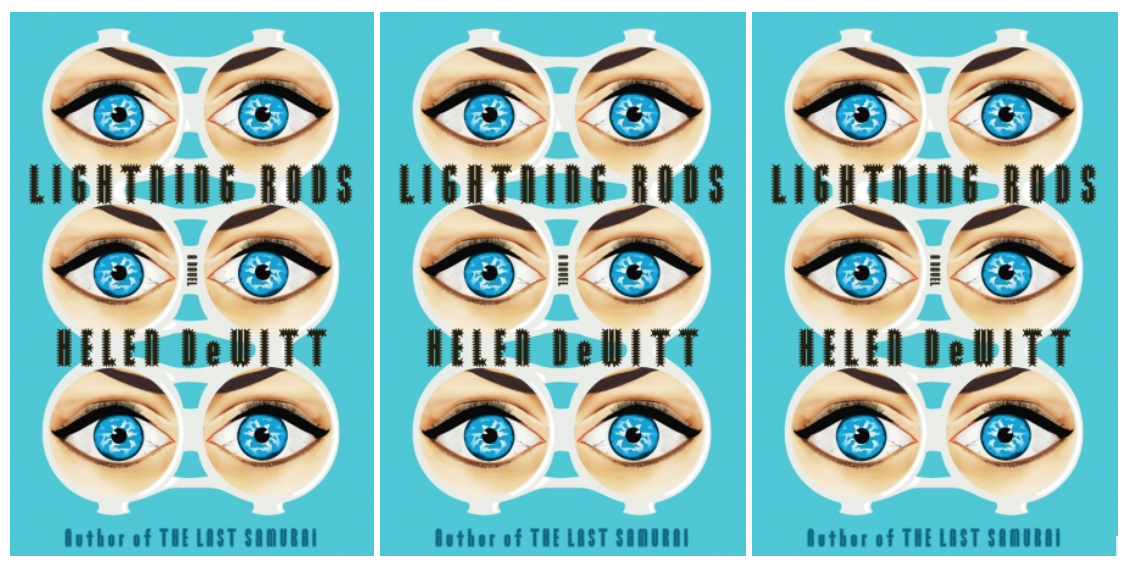Lightning Rods

Lightning Rods
Helen DeWitt
New Directions, Oct. 2011
$24.95
I tried describing Lightning Rods to my brother like this: “The book is about Joe, a salesman who sells glory holes and makes them a standard fixture in the bathroom stalls of corporate offices across America.”
He grimaced. “This was written by a woman, right?” Maybe so, brother, but Helen DeWitt’s savage follow-up to her debut novel, The Last Samurai, was clearly written for you.
My brother was skeptical of the market viability of glory holes in bathroom stalls. As he rightly perceived, and as the omniscient narrator of Lightning Rods is quick to point out, “there comes a time when screwing someone from behind with nothing to look at but the wall gets stale.” But salesman Joe is not hawking a cheap thrill to the CEO’s of America: he is implementing a “proactive sexual harassment management system.”
Armed with ample pseudoscience, Joe explains to his clients that “high-testosterone performance-oriented individuals are often at the greatest risk” of costly sexual harassment lawsuits. To protect companies from the financial threat these top workplace performers pose, Lightning Rods, Inc. installs a glory hole and an anonymous female employee to absorb the “sexual drive that produces results.”
The identities of the Lightning Rods, Inc. personnel, and the men who use the service, are rigorously safeguarded. Joe insists that anonymity, one of his hallmark innovations, distinguishes the service from prostitution. As a seller of “a quality product, a BMW, instead of a Datsun,” Joe classes up Lightning Rods, Inc. with a healthy dose of progressivism: the company is an equal opportunity employer thanks to the introduction of PVC hot pants, which obscure the skin color of the women; “Adjusta” adjustable toilets accommodate users of any height (and also hide the unseemly toilet when the facility is serving its alternate purpose). Lightning Rods, Inc. is eventually accepted as the “champion of family values, of corporate ethics, of responsible business practice.” DeWitt makes literal for her readers that what passes for liberalism in America is often parochialism dressed in up hot pants.
Lightning Rods reads as a relentless and pitch-perfect satire of corporate America, as if George Saunders had ghostwritten Malcolm Gladwell’s next bestseller. Our average Joe, the heroic salesman, struts through the novel like a motivational speaker with a direct line to the forces that have so blessed America: during one of his “idea man” reveries, “suddenly—whether by accident or through the mysterious workings of some higher power—he felt the need to take a leak.”
The action takes place in a compressed postwar twentieth-century, where the Communist menace is still fresh in Americans’ minds and sexual harassment charges are a “threat to national security,” but the Internet and blue M&M’s are commonplace; where shorthand is a marketable skill and woman are “gals,” but a “black gal” sits on the Supreme Court. Delivered with a teeth-baring grin, DeWitt’s book is a powerful corrective for any reader who believes America has moved beyond Mad Men paternalism and achieved real gender equality.


